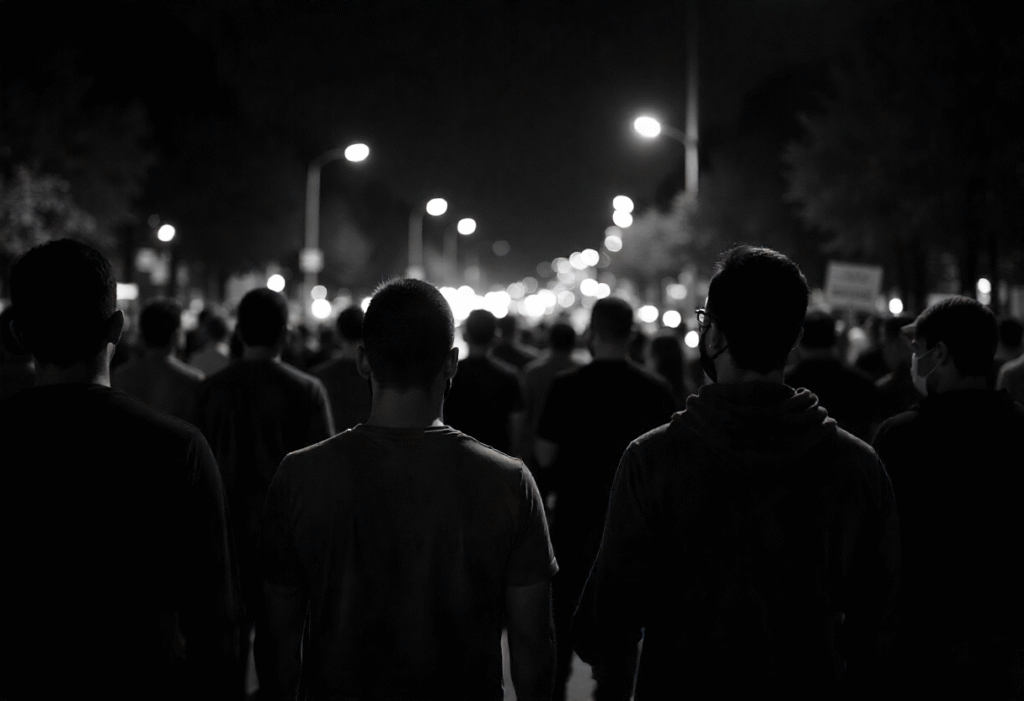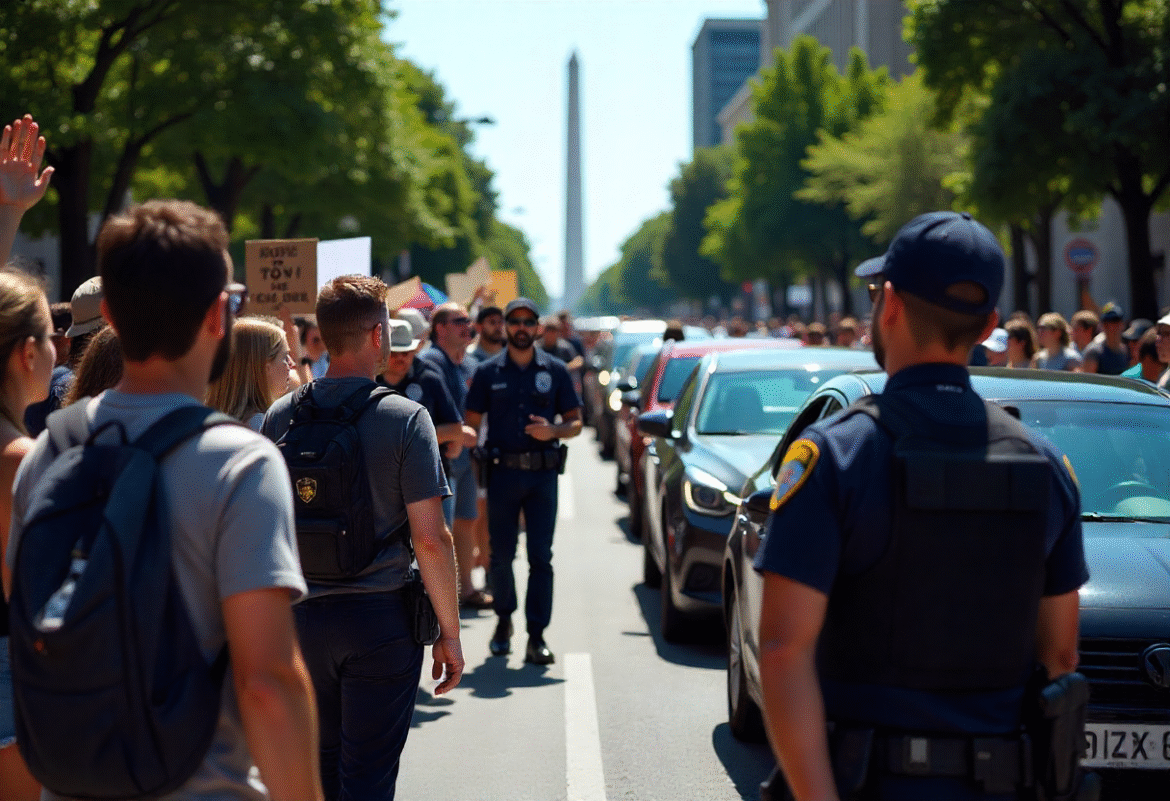What Happened: Checkpoints Spark Outrage
On the night of August 13, 2025, federal and local law enforcement including agents from Homeland Security Investigations (HSI), ICE’s Enforcement and Removal Operations, FBI, and D.C. Metropolitan Police established a vehicle checkpoint along the bustling 14th Street NW corridor, known for its bars and restaurants. Cars were temporarily pulled over for minor violations like seatbelt infractions, while some drivers were questioned on immigration status and licenses. At least two people were detained: a Spanish-speaking man whose car a red Kia was towed, and a woman who was handcuffed. (The Washington Post)
Residents reacted loudly: nearly 100 protesters gathered, shouting slogans such as “Go home, fascists” and “Get off our streets.” They warned drivers to avoid the checkpoint and accused officers of overreach and civil liberties violations. (The Washington Post, AP News)
The Broader Context: Trump’s Federalization of DC Policing
This confrontation came amid President Trump’s broader federal takeover of D.C.’s police force, authorized under the Home Rule Act, granting him temporary control for up to 30 days. Trump has since suggested he’ll seek an extension through Congress or possibly declare a national emergency. (The Guardian, AP News, Globedge).
Despite Trump’s claims of a surge in crime, violent crime in the district is actually at a 30-year low. (AP News, The Guardian)
Federal deployment includes:
- Up to 800 National Guard troops, with a 24/7 presence planned.
- A multi-agency federal task force led by U.S. Park Police, including FBI, ATF, Marshals, ICE, DEA, Homeland Security, and others. (Wikipedia, The Guardian, The Daily Beast)
Local Officials Push Back
City leaders have strongly criticized the move:
- Mayor Muriel Bowser called the federalization an “authoritarian push,” though she later softened her tone to acknowledge the potential safety benefits. (AP News, WISN)
- Councilmember Christina Henderson dismissed recent arrests as routine: “a bunch of traffic stops” akin to a normal Saturday night, accusing the administration of overstating the intervention’s necessity. (AP News, WISN)
Federal authorities, however, argue that the checkpoints help fill gaps due to understaffing in the city’s police department. (AP News, Wikipedia)

Residents’ Fears and Civil Liberties Concerns
For many Washingtonians, the heavier law enforcement footprint feels unnecessary and oppressive:
- One long-time local remarked that, even during the worst of the pandemic, such sweeping checkpoints had never occurred before. (KESQ)
- Sign holders and hecklers expressed anger at masked officers and questioned their accountability. (KESQ, The Washington Post)
- Advocates warned that these actions could erode civil liberties and set troubling precedents for federal authority in municipal matters. (Indiatimes, The Guardian)
One viral video captured federal agents purportedly harassing civilians without cause, fueling social media outrage and “authoritarianism” accusations. (Indiatimes)
Legal and Historical Perspectives
- The District of Columbia Home Rule Act normally protects local governance, allowing only a brief federal intervention when necessary. Trump’s extended move has raised alarms among legal experts. (Wikipedia, The Guardian)
- Historically, similar vehicle checkpoints in D.C. like those in 2008 were struck down for violating constitutional rights, raising concerns about the legality of the current strategy. (Wikipedia)
Why This Matters
| Factor | Why It Matters |
|---|---|
| Federal vs Local | Raises questions about democracy and autonomy in the U.S. capital. |
| Public Reaction | The peaceful but passionate protests demonstrate community resistance. |
| Civil Rights | Checkpoints and extended stays challenge norms of individual liberties. |
| Political Motive | Critics view the intervention as politically manufactured more than necessary. |
| Precedent | Sets a possible precedent for future federal actions in other cities. |
Conclusion
What began as a checkpoint on a busy street in D.C. has become a flashpoint in the ongoing debate over policing, federalism, and civil liberties in the nation’s capital. Residents, local officials, and legal experts are voicing concerns about the implications of extended federal control especially during a period of historically low violent crime. The tension is far from resolved, and how this unfolds may shape the future contours of local governance in D.C.

